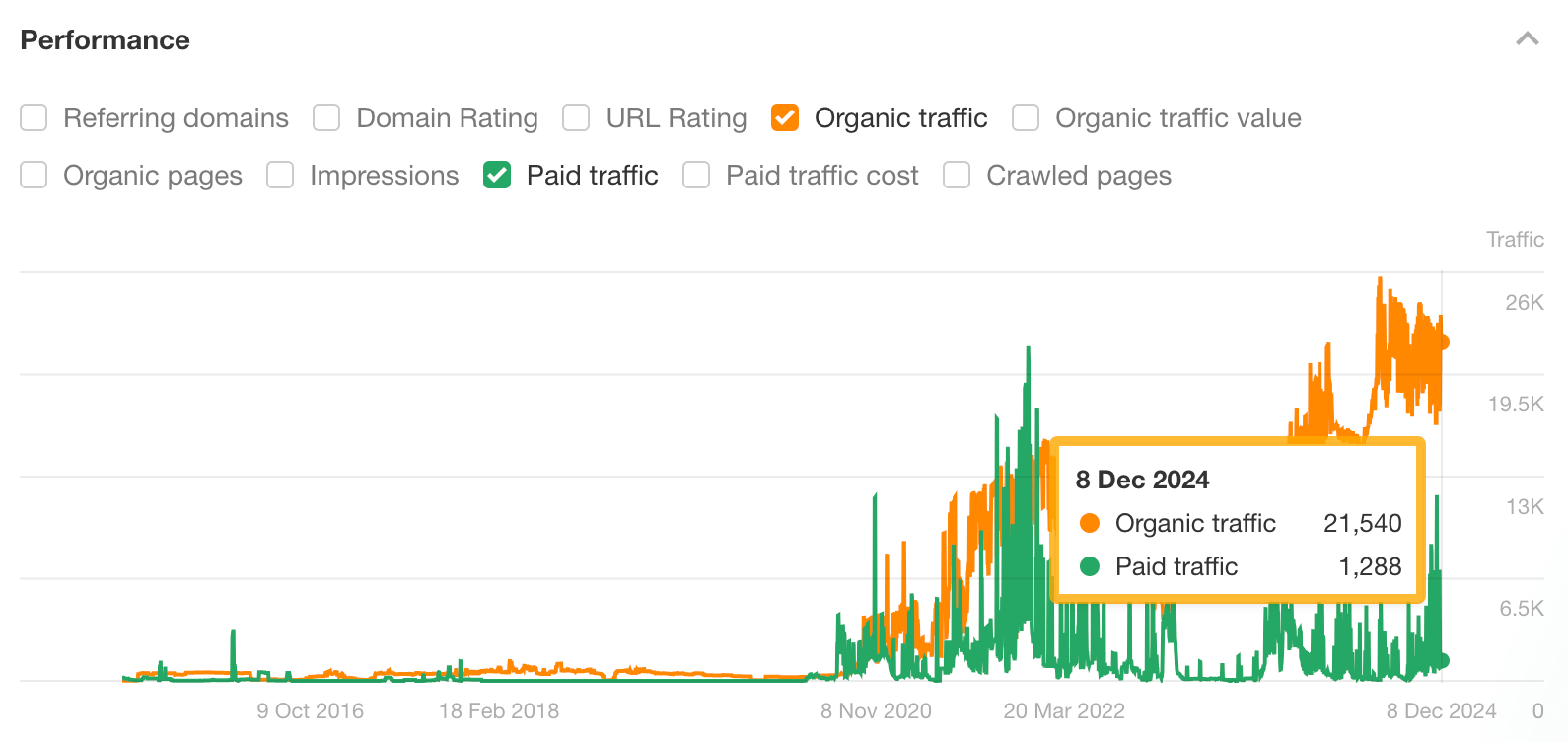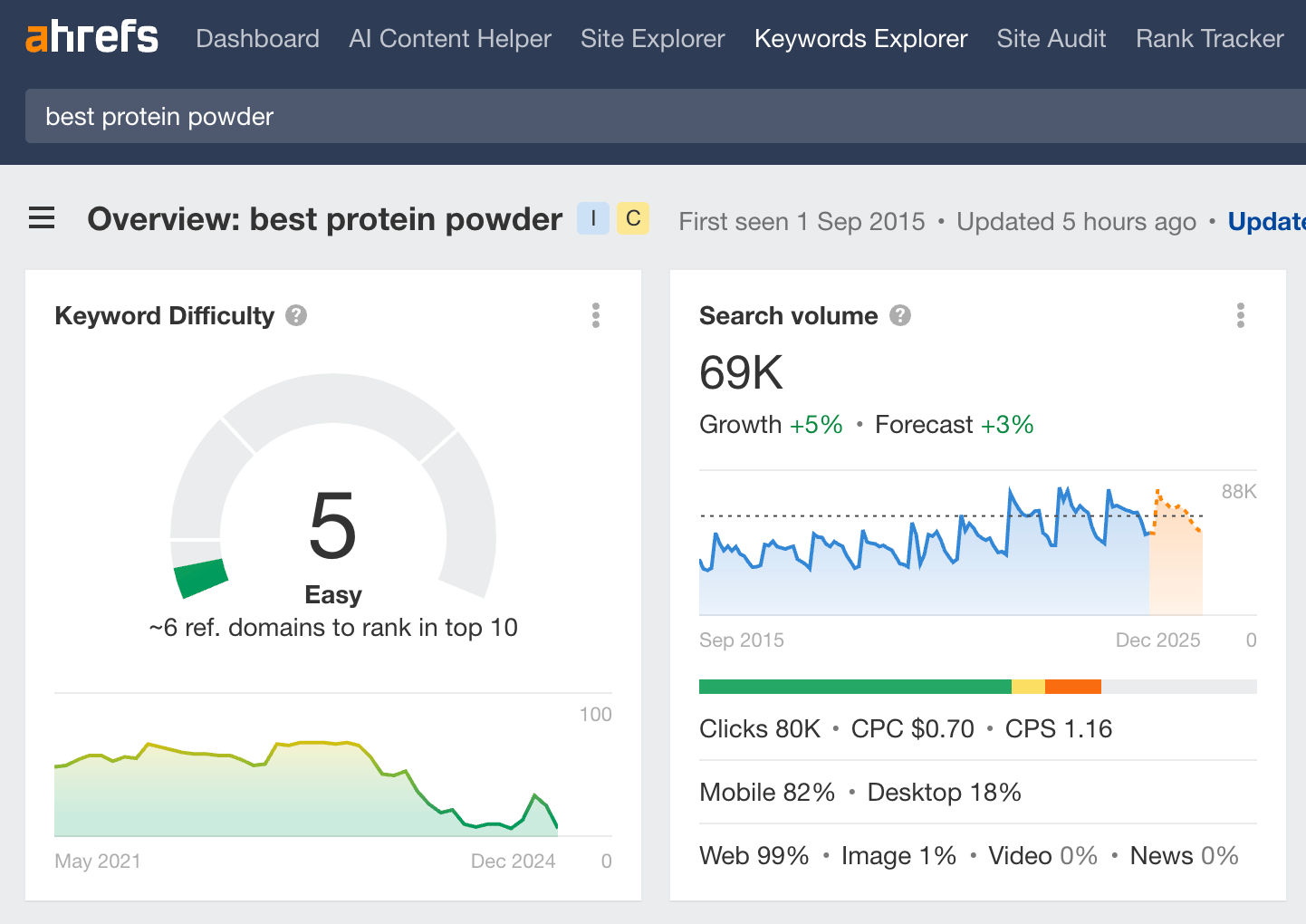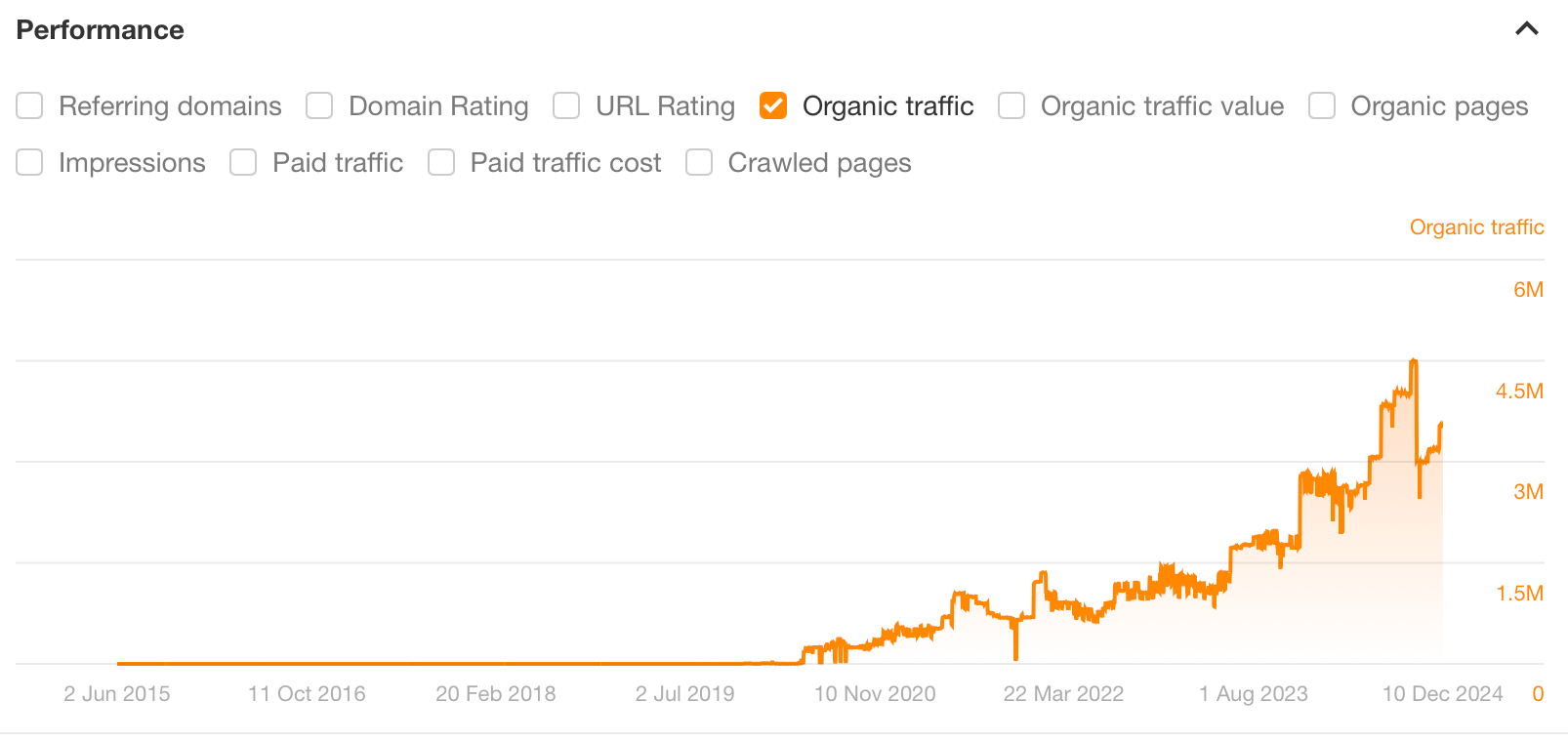SMX Advanced generally features all the latest in SEO and PPC marketing techniques, strategies, and news. However, this year we decided to add a brand new track focused on user experience in search marketing.
It’s no secret that search engines are moving toward finding ways to measure this experience. Google’s page experience update (which is now officially rolling out) and the introduction of Core Web Vitals are a move in that direction, for example. We now have numbers behind the ways that searchers experience our websites: how fast does it load, how quickly can they actually interact with it, and does the page shift around annoyingly before they can use it?
What is our goal as search marketers? Search marketers often get caught up in the numbers. We have goals and KPIs that are often set for us (traffic from organic search, CPA, ROAS, and overall conversions from our campaigns). But in my keynote at SMX Advanced this year, my goal is to convince you that our main purpose as marketers is actually to help consumers accomplish their goals online. And I believe this new direction from search engines indicates that it’s their goal as well (and has been for a while).
Imagine you’re planning to spend your Saturday morning checking some easy chores off your list so you can relax in your hammock all afternoon. You’re going to mow the lawn, clean out the garage, and wash your car. But as you set up to begin each task — something always seems to be preventing you from getting it done. Your lawn mower won’t start. The water pressure from the hose is dismal. And the garage has WAY more junk in it than you remember. You wasted all morning trying to get things done and were just met with frustration. This is exactly how it feels to be a user on the web.
Online searchers are at the mercy of how web developers, designers, and marketers build the user experience online.
And it can be frustrating as all get out when you can’t accomplish the tasks you need to online. Psychologically frustration happens when the results of our actions don’t match the effort we feel like we’re putting in.
How frustration works. Researchers studied the affect frustration can have on us by observing mice looking for sugar tucked away in a small port. To get to the sugar cube, the mice just had to poke in their snouts and lick. It was super easy at first, but with each attempt to taste the sugar the researchers made a little harder. Eventually, it was too difficult, and after trying repeatedly the mice started giving up. At a certain point, every single one of them stopped trying.
This is exactly what happens to your website visitors, too, when the user experience is frustrating and your online properties do not help them accomplish their goals.
Evolution of search engines. Back in the day, Google and other search engines didn’t used to look at the functionality of websites — whether your visitors were actually able to do what they wanted once they got there. Initially, search engines just looked at what was there. Is the lawn mower in the yard? Is the hose on the reel? Do you have a garage in the first place?
Search engines are realizing that usability is also key to a good search experience. This means we can no long use the strategies and tactics that we did in the past. And we know that, but sometimes we seem to be stuck with the idea that content is king and so as long as our content is good enough to rank, that should be enough.
That’s just not the case. We have one job — and that’s to help our website visitors get their to-dos done. Because imagine if your weekend tasks were more like — book a plane ticket for work, find the best pediatrician, or buy groceries online.
Empathy is key to better search marketing. We’ve been focusing so long on those measurements of our own performance that we forget that there are actual humans trying to get things done on the other side of the computer screen.
This not to say Core Web Vitals are NOT important. Instead, I’m saying let’s build on what Google’s provided us and go to the next level of user experience in search marketing. That starts with empathy.
how can we become more empathetic search marketers so we’re providing a better user experience AND doing our jobs better too?
I found an article from the Greater Good Science Center (GGSC) at the University of California, Berkeley that talks about the 6 habits of highly empathetic people. It’s a great match for search marketers too. Let’s dig in:
1. Cultivate curiosity about strangers
Science shows that curiosity expands our empathy when we talk to people outside our usual social circle. Curiosity makes us smarter and even boosts achievement. Cultivating curiosity requires more than having a brief chat with our audiences. It’s about really trying to understand the world inside the head of the other person.
Tools like FullStory and HotJar can give us a glimpse into that POV as we become curious about how our audience experiences our websites. Sometimes we just assume that “people don’t know how to use the web” when we see them struggling on our sites, but the majority of the time, it’s actually that we haven’t made it easy for them to use.
We figure that out (and can fix it!) by being curious about how people can or cannot accomplish their goals on our search marketing properties.
2. Challenge prejudices and discover commonalities
The next step is challenging prejudices and discovering things we have in common. We all have assumptions about others and use collective labels that prevent us from appreciating their individuality. Empathetic people challenge their own preconceptions and prejudices by searching for what they share with people rather than what divides them.
My friend Michael is a CRO consultant and worked with a D2C mattress company. A company founded by men, all their marketing materials were geared toward men in their 30s because they thought they were their own target audience. (That’s why they started their company, after all.) But Michael found that their largest audience and group of buyers was actually women in their 60s.
These were not necessarily prejudices, but definitely assumptions. They changed some of their wording and their website experience to reflect this newly discovered audience.
3. Try another person’s life
Go through your own user journey from beginning to end: search something, click an ad (yes, pay for it, it’s worth one click), read and complete the landing page form, get the email, click the links, visit the site… you get the picture. See along the way where things disconnect or are complicated or don’t make sense.
Too often we use the conveyor belt strategy within out marketing departments. PPC doesn’t talk to SEO doesn’t talk to email marketing doesn’t talk to sales, etc. We focus on being on charge of our section of the assembly line — and not the whole journey in its entirety.
Try the life of your user trying to get things done on your user journey. You’ll become much more empathetic to missed conversions and lost customers along the way.
4. Listen hard — and open up
There are two traits required for being an empathic marketer: One is to master the art of radical listening. But listening is never enough. The second is to be open to hearing hard things.
Usability testing involves giving someone a task to complete on our sites and having them talk through how they’re doing it. Sometimes they feel bad hurting the marketer’s feelings. We should encourage them to be ruthless and relentless — to let us know about every little thing that frustrates them or that could be a barrier to entry. We need to make ourselves open to those feelings and not default to “well, they just don’t know how to use the web!”
We need to open up to criticism to make our website experiences as positive as possible for all users who come to our sites. Remember, it’s not personal (even if you feel like your website is your baby). It’s in the name of improvement for all.
5. Inspire action and change
Highly empathetic marketers inspire action in users, of course. When we empathize with their struggles, their goals, and their needs, we can help them get things done. And we can move them along that customer decision journey to help them take action.
But we can also inspire action in other marketers to improve the user experience on the web. This can include things like accessibility and even just overall ease of use. When we set the standard, the bar is raised for everyone.
A great example of this is Amazon’s one-click checkout on their app. This easy and fast checkout option makes long, multi-page checkouts from other retailers seem cumbersome and frustrating. Amazon set the bar and inspired action for other retailers to do the same.
6. Develop an ambitious imagination
A final trait of highly empathetic marketers is that they do far more than empathize with a single persona. Along with cultivating empathy for our target audiences — We also need to empathize with people whose beliefs we don’t share, who may be competitors or who may not even be in our target market in some way.
This means we need to get out of the “SEO” or “PPC” box and ask ourselves: Is this the only way to do it? Are there other ways? Who else can I bring in to help me see new perspectives? Have I even showed pages to users? Checked it on mobile?
I’m not saying use sketchy SEO or PPC strategies or techniques. Don’t go against guidelines and terms of service. But you don’t always have to go by the recipe. Just because it’s always worked this way, doesn’t mean it always will. Search strategies and tactics are ever-evolving. What will we do next? And there are quite a lot of signs that what Google’s trying to do next is find things that actually work.
When we implement these elements of empathy in our websites, PPC campaigns, SEO strategies, and more, we’re improving the experience for all users.
User experience is key to the future of search marketing. The key to understanding the people who are trying to accomplish goals on your website through empathy is understanding that user experience goes beyond just your silo in the marketing journey. Google has told us the metrics they care about, but it’s what they’re not telling us directly that I think matters most to a good page experience.
We need to work better to understand our website visitors, be empathetic to their individual needs, and help them accomplish their goals. Whether that’s getting their Saturday morning chores done or finding the best CRM for work, looking for a new car, buying a laptop, ordering a laundry service, etc.
A positive user experience is the now and the future of helping your target audiences get things done while meeting your marketing KPIs.
About The Author

Carolyn Lyden serves as the Director of Search Content for Search Engine Land and SMX. With expertise in SEO, content marketing, local search, and analytics, she focuses on making marketers’ jobs easier with important news and educational content.
Content Copyrights Belong to The Author. All Rights Reserved.
We're A Dallas Digital Marketing Agency That is Experts At Social Media Marketing, Website Design and Emarketing and Promotion.



